
Share
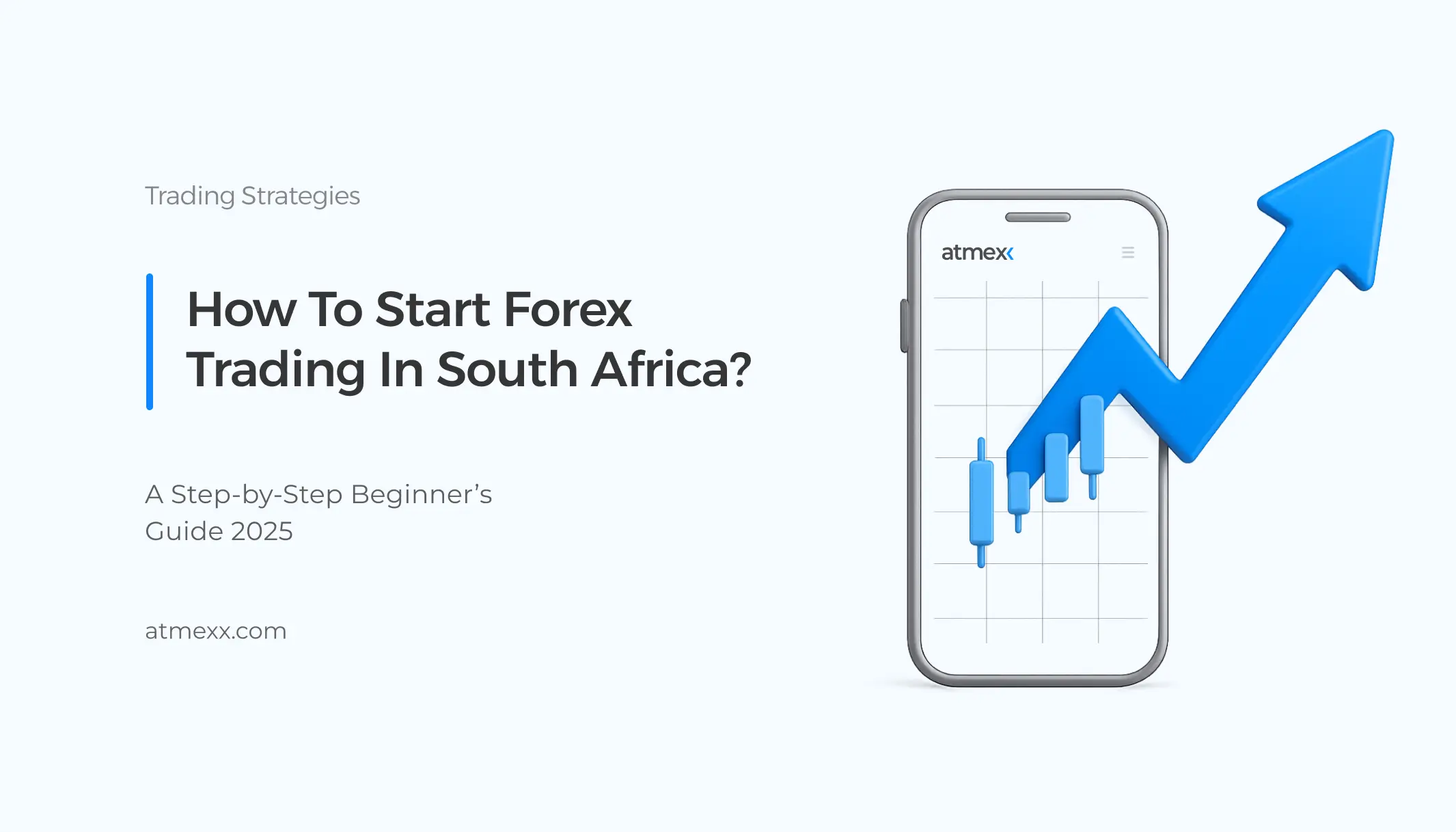
Related articles
Author
How to Start Forex Trading in South Africa: Step-by-Step Beginner’s Guide
Forex trading is gaining more popularity in SA, luring newbies who are looking for a simple yet effective way of getting into the global financial market. Low costs of entry, 24/5 market availability, as well as profits in both up and down conditions, present distinctive opportunities to newbies.
This tutorial provides South African Forex traders with a clear, step-by-step blueprint—basics, local regulation, getting an account, and neophyte strategies—to enter Forex trading safely and successfully.
Forex, or foreign exchange, is the global marketplace in which currencies trade. Unlike a centralised exchange, Forex trading occurs over-the-counter (OTC), meaning it takes place directly between market participants worldwide via computer. Traders speculate regarding price movements of currencies in pairs, hoping that changes in exchange rate movements will be profitable.
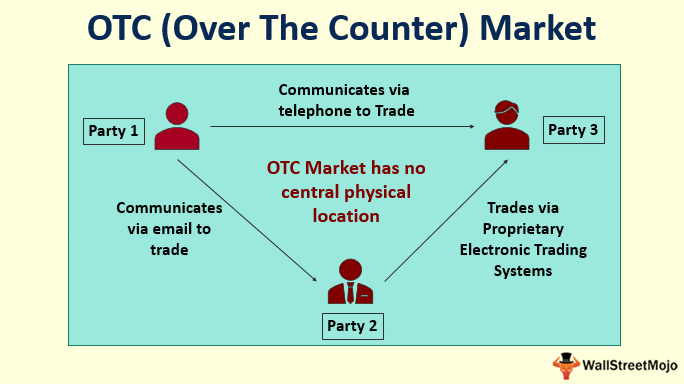
The Forex market is by far the largest and most liquid worldwide market, with over $7 trillion traded each day, providing opportunity both for neophytes as well as pros.
Forex trading is becoming increasingly popular in South Africa due to its ease and flexibility. Being capital-light, it is affordable even for newbies to enter Forex trading from home online. Trading five days a week, 24 hours a day, is also appealing to people who wish to keep trading in line with daily life.
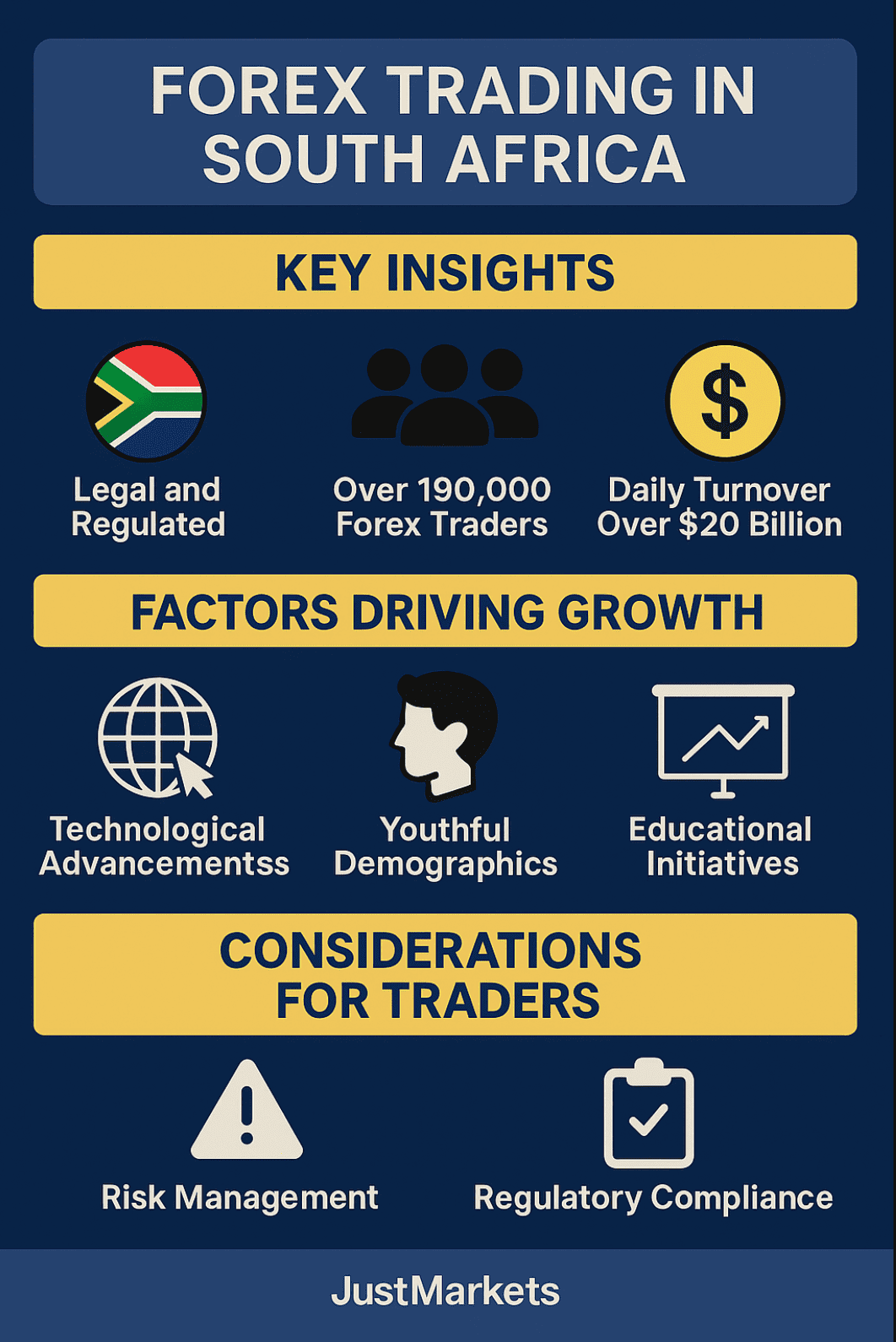
In fact, what makes Forex appealing in South Africa is that it can generate money in both up and down market conditions, compared to conservative investments whose value appreciation happens only in cases of price rise. Forex, in fact, makes entry in global finance easy and appealing to newbies.
Getting into Forex in South Africa is easier than it looks. After following a few easy steps—choosing a regulated broker, opening an account, and getting some experience with a demo—you can be trading Forex in no time.
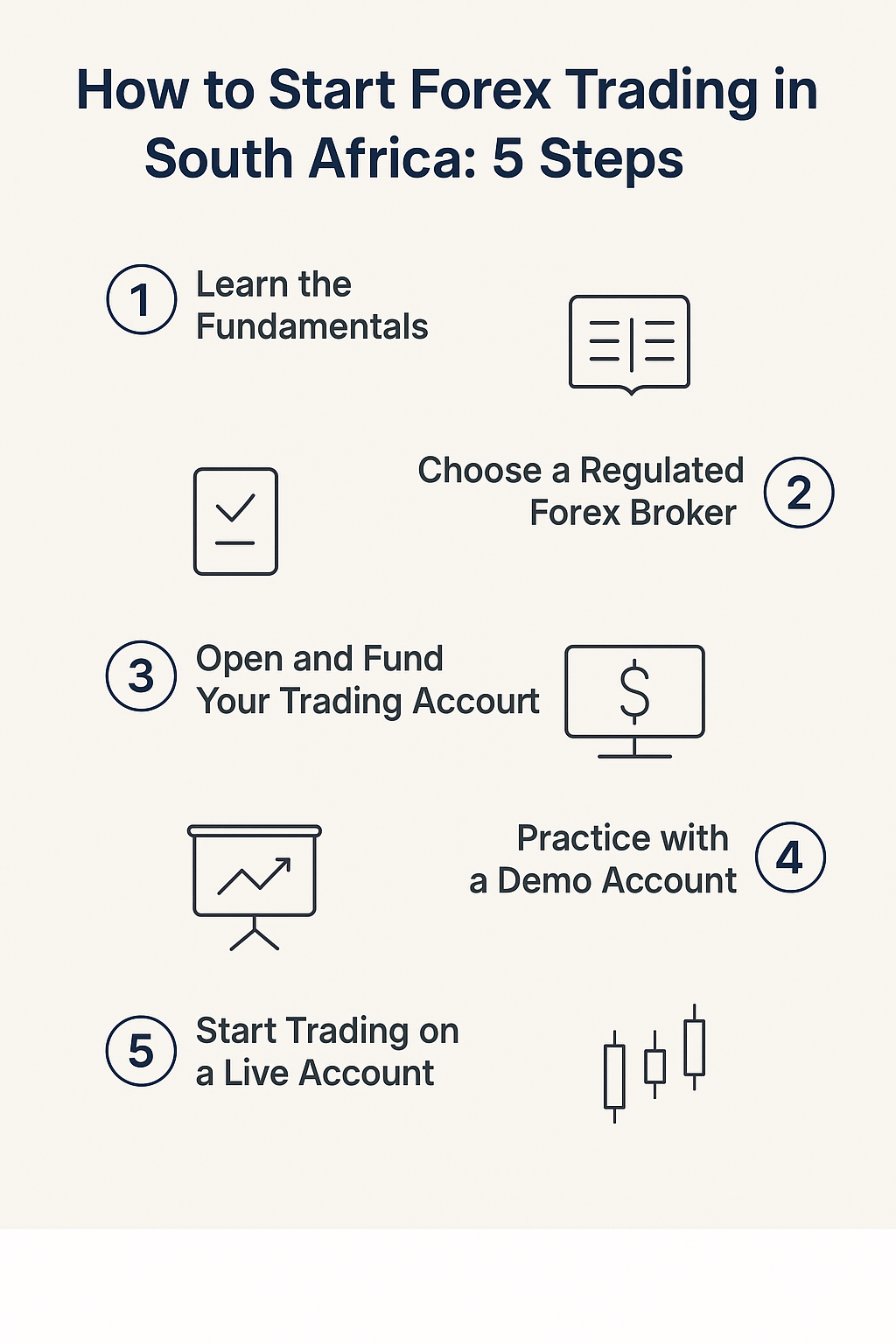
The beginner's first step in Forex trading involves gaining a good understanding of how the Forex market operates. Most new entrants dive headfirst into real trades without proper preparation, and this usually results in immediate losses.
By paying attention to Forex education, you will get to understand how the market operates, what influences money prices, and also how to put straightforward trading strategies to good use.
There is a wide variety of resources suitable for both beginners and experienced individuals. One of the best places to start is with a Forex demo, as it provides real market conditions in a safe and controlled scenario. Tutorials, courses, and webinars also give good advice, while niche communities permit people to get in touch with more experienced traders.
When you get started, there are several terms that you will encounter, such as pips (the least amount of movement of a pair of currencies), leverage (which magnifies both gains and losses), margin (the funds required to initiate leveraged trades), and spread (the entry cost of a trade). Learning about these fundamentals will get you ready for what is to come in your trading career.
The choice of your broker will either make you succeed in trading in South Africa or cause you to lose your money. Your money will be safe with a regulated broker, as will your ability to trade fairly and openly. In South Africa, a broker gets licensed by the FSCA (Financial Sector Conduct Authority) in a bid to protect traders as well as impose compliance.
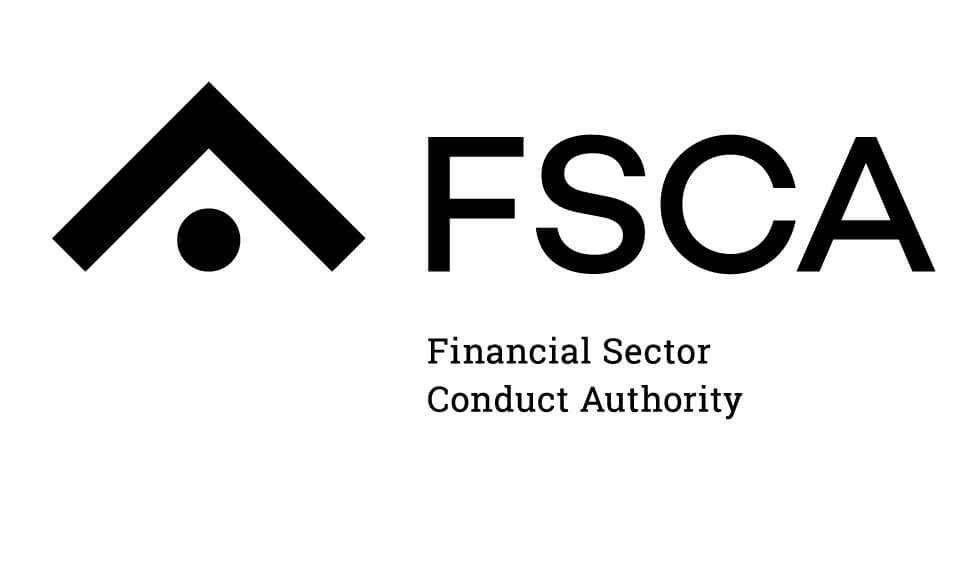
When looking for the best online broker, take spreads, speed of execution, platform stability, and customer support quality into consideration. An ideal trading platform needs to be easy to use, speedy, and supported by strong analysis tools.
Atmexx is a good example, being a FSCA-regulated platform that offers very competitive spreads, executes trades swiftly, and provides professional support. The platform thus emerges as a strong player in the market, particularly when seeking Africa's best broker.
After selecting a broker, opening and funding your account comes next. Most traders will initially use a demo account and then switch to a live account, where real money is involved. In accordance with regulations, there will be a KYC check, typically needing evidence of identity and address.
Paying to finance your account in South Africa is usually straightforward. The best online brokers are convenient in offering such easy payment options as bank transfers, debit/credit cards, and electronic purses. Withdrawals should also be straightforward, so that at any time, you are always in control of your funds.
A demo account is not simply a practice tool — it is also the safest way that newbies can attempt trading strategies and get used to the finest trading sites without risk. You will be able to get practice with placing orders, chart-reading, and creating a trading regimen in conditions that mimic the real market.
Practising also teaches discipline and emotional control, both valuable qualities of successful traders. Once you become comfortable dealing with trades and operating around the platform, it will be time to move up to live trading with greater confidence.
When at last you upgrade to a live account, it's wise to start small. Regardless of whether you've experimented, real-world trading is stressful and risky. Begin small, and incrementally increase your exposure only as your confidence and competence grow.
Recognising order types is essential. Market orders will buy/sell at market price now, limit orders will wait for a specific price, and stop-loss orders will protect against massive losses. In new trading, these are absolute regarding controlling risk, as well as staying in control.
By taking it one step at a time — from learning about the fundamentals to setting up an account, practising in a demo, and then trading live with caution — you create a more stable, more structured path into Forex trading in South Africa.
Having a reliable friend like Atmexx means that you benefit from ultimate trading platform performance and security by an FSCA-regulated broker, upon which long-term success is rooted.
Before embarking on your trading career, you must understand how Forex is locally regulated. Back in South Africa, vigorous regulation ensures that brokers deal fairly and that traders are safeguarded as regards funds.
Comprehension of the fundamentals of regulation will help in selecting a safe and reliable broker and avoiding unwanted risks.
In South Africa, Forex trading is governed by the Financial Sector Conduct Authority (FSCA). The FSCA works to ensure that brokers are honest, transparent, and act in such a way that helps to safeguard traders. For newcomers, this means extra protection and peace of mind in choosing a licensed broker.
In exchange for being issued an FSCA license, brokers are expected to comply with strict rules. They must hold adequate financial reserves, keep customer funds separate from corporate funds, and file periodically to show that they are in compliance. They are intended to ensure that brokers are financially strong and accountable to customers.
Regulation gives more protection to traders. Authorised brokers must keep client deposits safe, price transparently, and deal fairly with all trades. In the event of a dispute, traders also have recourse to take their case to the FSCA, which will act as arbitrator to resolve matters.
The Forex market in South Africa is growing at a very fast rate, and while this offers opportunities, it also attracts unregulated operators. The safest approach to avoiding scams and unethical practices is to go with a broker who is regulated by FSCA. For beginners, regulation is not simply a process—regulation is the foundation of safe and reliable Forex trading.
Starting with simple, direct strategies works best for beginner Forex traders to feel comfortable in the market. Instead of pursuing complex systems, newbies can focus on a few successful strategies that utilise basic tools, such as support and resistance, moving averages, and breakouts.
They are easy to understand, easy to practice, and help Forex traders focus on the discipline needed to be successful in the long term.
Support and resistance are price points at which markets will tend to stall or reverse. Support is the price at which falling prices encounter demand by purchasers, while resistance is the price at which rising prices meet selling pressure.
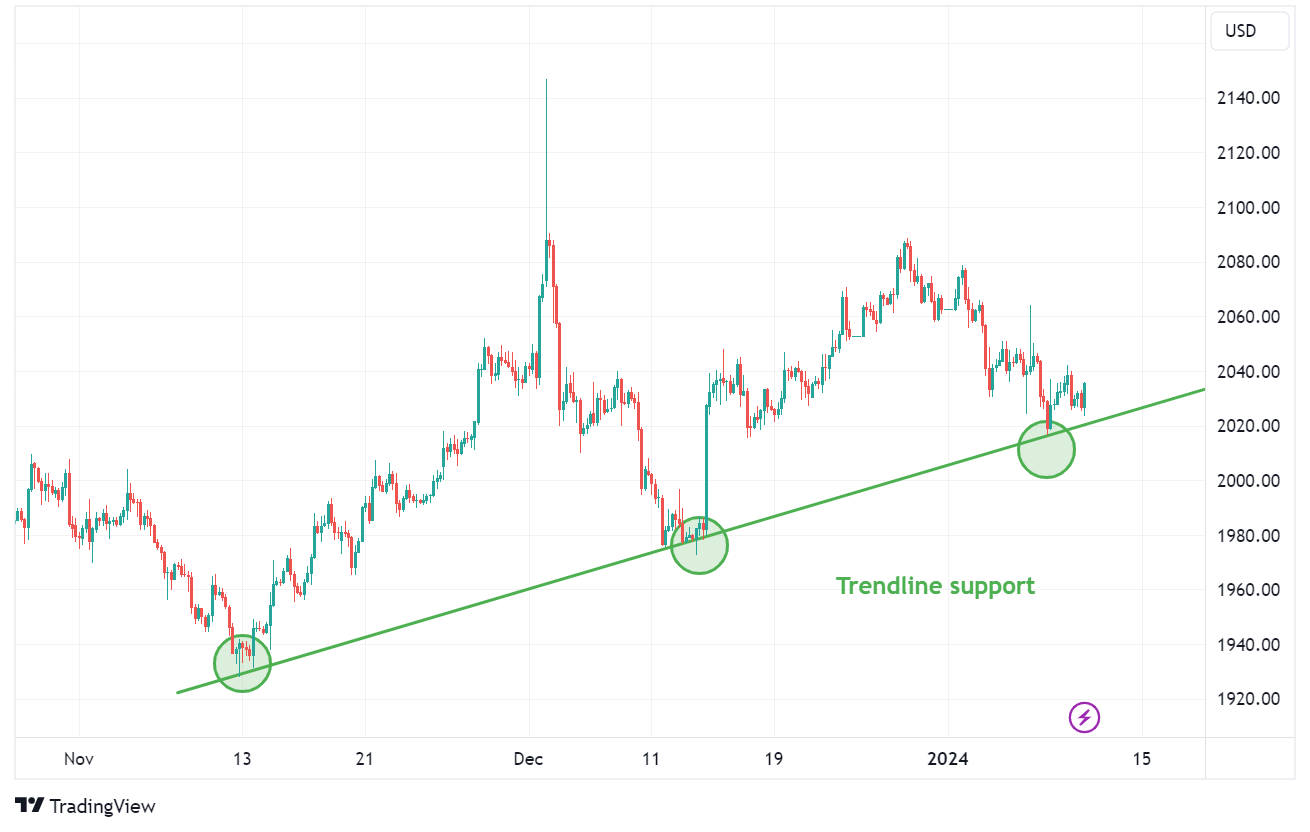
The more times support and resistance occur, the more likely they become. Trend lines are of this same nature, showing the overarching trend of price. By connecting multiple swing lows in an up trend or swing highs in a down trend, traders can determine if momentum is strong, weakening, or broken.
For SA traders who trade currencies such as USD/ZAR, it makes good sense to allow slightly wider zones because exotic currencies tend to move more precipitously than majors.
One of the simplest systems for newbies is the moving average crossover. It consists of two moving averages—the 50- and 200-period exponential moving averages (EMAs)—typically. When the short average crosses over the long, it signals a potential uptrend; when it crosses over, a downtrend.
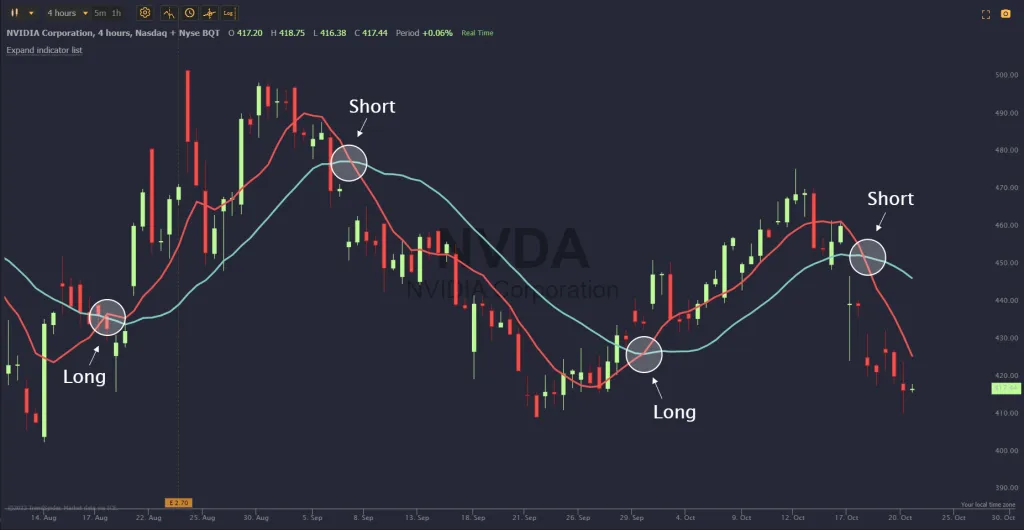
Traders usually enter after the price corrects back to the moving average, indicating it will continue in the direction of the crossover. Stop losses go just beyond recent swing lows, while targets can be taken at a fixed multiple of risk or trailed along the moving averages.
The key is to avoid trading when the averages are horizontal, as usually this spells sideways, choppy conditions.
Another beginner-friendly approach is breakout trading. Markets will often consolidate in tight little ranges, and after price breaks out of this “box,” momentum usually takes it decisively in that direction. Traders will wait for repeated tests of support or resistance, then enter after the price closes decisively above/below those levels.
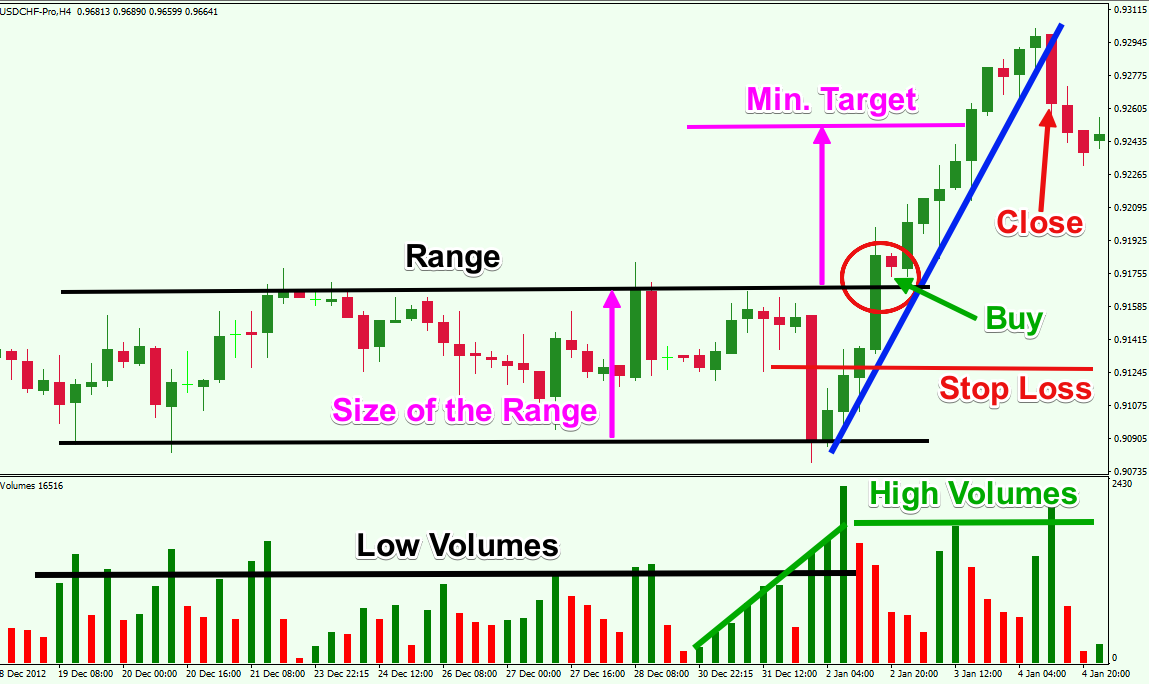
Stops usually go back in the range, while profits are taken by the magnitude of the range or left to run with a trailing stop. Not waiting for a candle close above/below the level, rather than breaking out at the first spike, helps to weed out fake breakouts.
While strategies lay out the rules, discipline applies them. Revealing a small part of your account—some 1% per trade, in this case—enables you to survive losing runs without draining your capital.
Stop losses should be considered absolute, never modified after entry. Another good practice is to keep a bare-bones trading diary to examine trades and develop your edge in due course.
Forex success, in short, is more about applying these elementary methods with patience, consistency, and judicious risk management than about finding that “perfect” strategy.
Where there are so many brokers around, it is often challenging to identify a reliable partner. Atmexx stands out by combining strong in-country regulation with international market access, offering South African traders a safe, transparent, and positive platform upon which to grow their trading career.
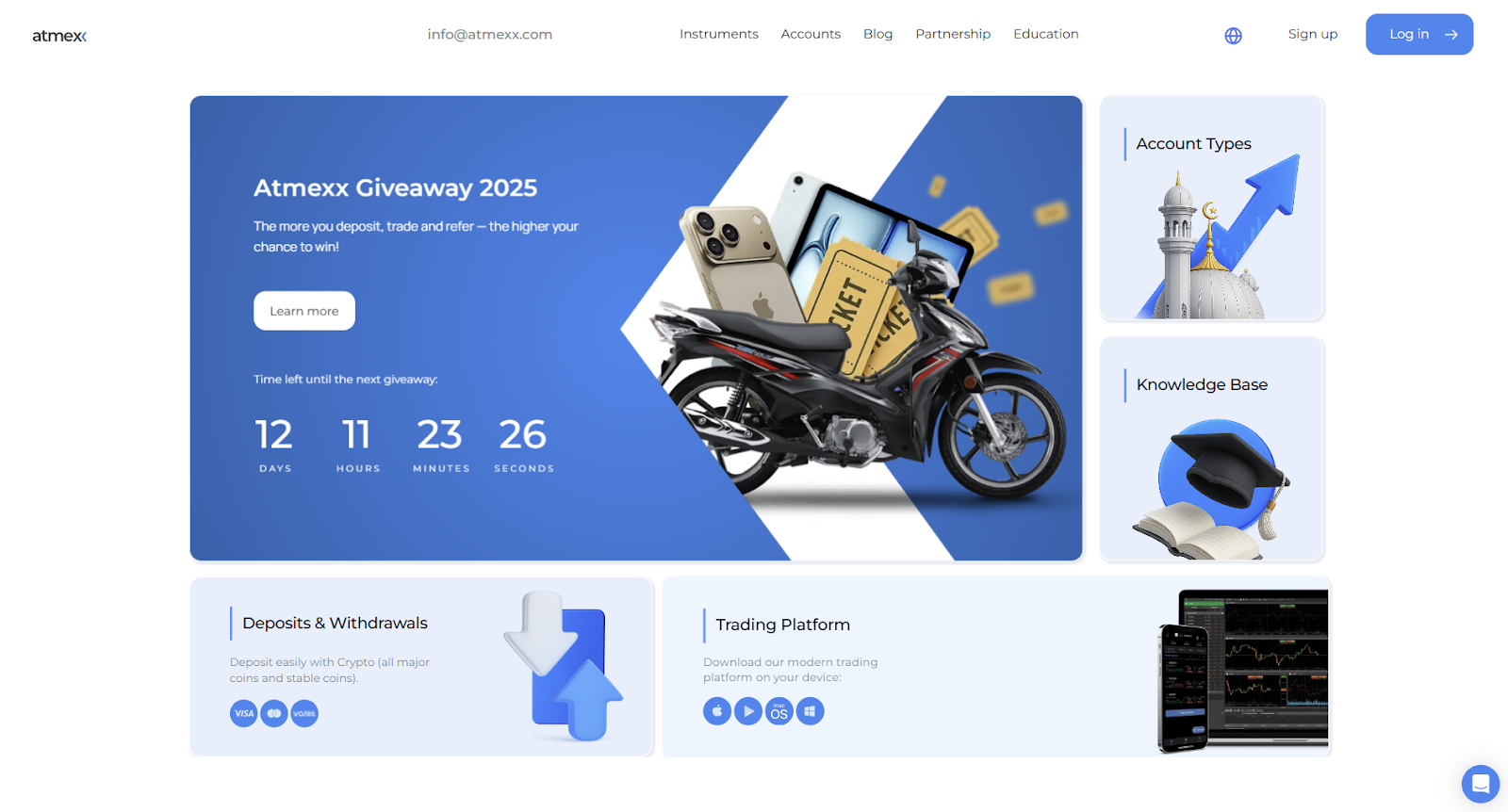
For local South African traders, it is of utmost importance to choose a locally regulated broker. Atmexx is licensed by the Financial Sector Conduct Authority (FSCA) and, therefore, is subject to strict compliance rules that are in place to protect customers.
Traders can be guaranteed that money is stored in secure, segregated accounts and that the broker is subject to regular audits to be transparent. This safeguard provides one with a sense of security and a safe trading platform, especially for new traders.
Forex costs add up. Atmexx offers low spreads in major and exotic currencies, so that traders can enter and exit trades without unnecessary expense.
Better still, there are no gimmick fees and no surprise fees. Having clear knowledge of what costs will be ahead of time enables more efficient planning of trades and risk management with confidence.
Timing is often the difference between loss and profit in Forex. Atmexx provides fast execution times, reducing slippage and ensuring that traders get the price in front of them on their screen.
Beyond technology, Atmexx also offers customer support, which helps traders resolve issues promptly and focus on the market. Through efficiency and consistency, Atmexx streamlines trading.
While Atmexx is considerate of South Africa traders' requirements—allowing payment in local terms, ZAR accounts, and country-compliance—it also opens up access to the global Forex market.
Traders get to access a vast spread of currency pairs, commodities, and CFDs, merging global opportunities with local convenience. The international reach, coupled with local expertise, makes Atmexx a trustworthy partner among South Africans who want to trade with confidence.
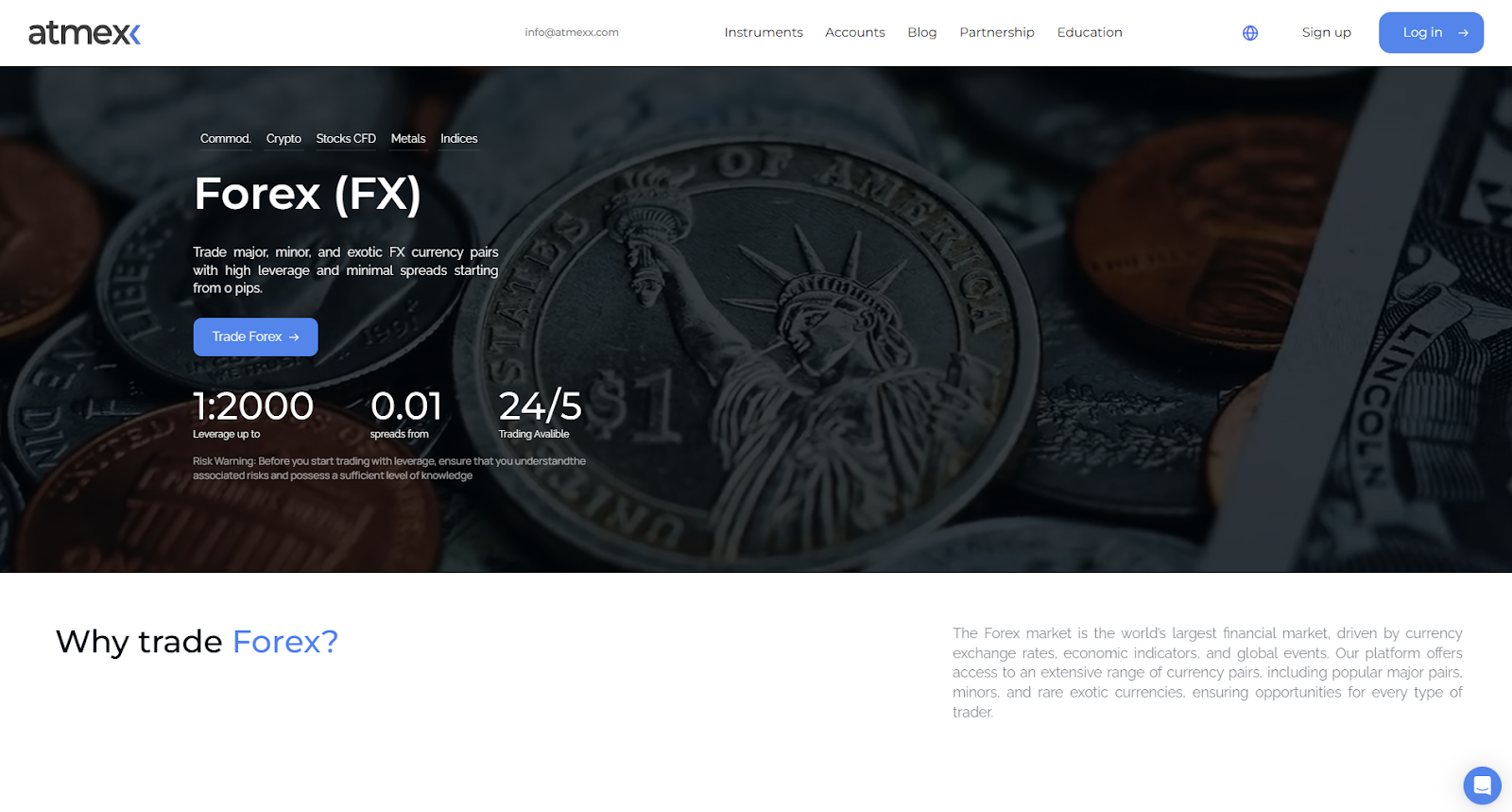
Starting Forex trading in South Africa is a journey best taken cautiously and with a good partner. Learning the basics, getting a feel for it with a demo, and trading with a broker regulated by the FSCA, such as Atmexx, helps starters venture into the market with confidence and security.
Remember that success in Forex is not about racing trades, it's about consistency, discipline, and proper risk management. When such a foundation is in place, it's time to step into the world's largest financial market.
Open your Atmexx account today and start trading the South African way—safely and effectively.
How do I start Forex trading in South Africa?
Begin by learning the basics, choosing an FSCA-regulated broker, opening an account, and practicing with a demo before trading live.
Is Forex trading safe in South Africa?
Yes, as long as you trade with an FSCA-regulated broker, your funds and trading environment are protected.
How much do I need to trade Forex in South Africa?
You can start small—often with just a few hundred rand—but it’s wise to begin cautiously and scale as you learn.
What is the best strategy for beginners?
Simple methods like moving average crossovers or breakout trading help newcomers trade with structure and reduce risk.
Why should I choose Atmexx as my broker?
Atmexx is FSCA-regulated, offers competitive spreads, fast execution, and strong local support—ideal for South African traders.